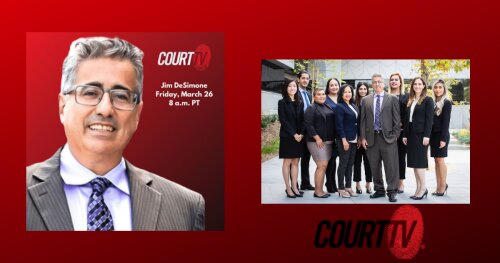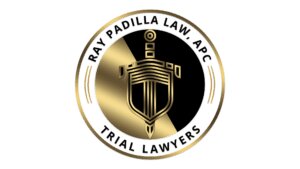Best Faith-Based Law Lawyers in California
Share your needs with us, get contacted by law firms.
Free. Takes 2 min.
Or refine your search by selecting a city:
List of the best lawyers in California, United States
About Faith-Based Law in California, United States
Faith-based law refers to the intersection of religious beliefs and legal matters, addressing how faith communities operate within the framework of state and federal law. In California, this area of law covers a wide range of issues, such as religious freedom, the rights and obligations of faith-based organizations, and legal questions around religious practices. Faith-based law also touches on matters like employment, property management, family law, education, and charitable giving as they relate to religious institutions and individuals.
Why You May Need a Lawyer
Individuals or organizations may need a lawyer familiar with faith-based law for many reasons, including:
- Forming or dissolving a religious organization or nonprofit
- Negotiating employment contracts or resolving workplace disputes involving religious beliefs
- Addressing disputes over property owned by religious groups
- Navigating issues of religious discrimination in schools or workplaces
- Understanding tax exemptions and compliance for religious organizations
- Defending the right to practice religious customs within the bounds of California law
- Ensuring bylaws and policies meet both doctrinal and legal standards
- Resolving internal religious disputes in a manner that is compliant with state and federal law
- Guiding faith-based charities through complex state regulations
Local Laws Overview
California law robustly protects freedom of religion while also imposing certain requirements on faith-based organizations. The California Constitution guarantees every individual the free exercise and enjoyment of religion, paralleling federal protections found in the First Amendment. However, religious groups operating as nonprofits or employers must comply with state laws regarding employment, nondiscrimination, zoning, and safety. There are special provisions for faith-based nonprofits related to tax exemptions, reporting obligations, and fundraising. Religious organizations may also be subject to local city or county ordinances governing building use, assemblies, and charitable activity. It is important for faith communities and leaders to understand both the privileges and responsibilities they have under state law.
Frequently Asked Questions
What legal protections exist for religious freedom in California?
California upholds both federal and state constitutional protections for religious freedom, ensuring individuals and organizations can practice their faith without undue interference from the government, subject to certain reasonable limitations for public safety and welfare.
Is my church or faith-based organization automatically tax exempt in California?
No, churches and religious organizations must apply for and maintain tax-exempt status with the Internal Revenue Service and the California Franchise Tax Board, and must comply with annual reporting requirements to keep their exemptions.
Can a faith-based employer make hiring decisions based on religious beliefs?
Religious organizations in California may give employment preference to individuals who share their religious beliefs for certain roles, but they must still comply with key state and federal nondiscrimination laws, especially regarding other protected characteristics.
What should our organization do if we face a zoning dispute with the city?
Faith-based organizations have legal rights under laws like the Religious Land Use and Institutionalized Persons Act, but should consult an attorney familiar with land use and local ordinances to ensure their rights are protected effectively in disputes with municipalities.
Do faith-based schools have to follow the same standards as public schools?
Private religious schools have some flexibility in curriculum and religious activities but must adhere to certain state standards regarding health, safety, and nondiscrimination, and may be subject to additional requirements if they receive public funds.
Can I bring a lawsuit if I believe I was discriminated against due to my religion at work?
Yes, California law prohibits religious discrimination in the workplace. Employees who believe they have been treated unfairly can file a complaint with the California Civil Rights Department or seek legal counsel to evaluate potential claims.
What legal issues arise with religiously-based counseling services?
Faith-based counseling groups must comply with licensing requirements if providing professional services, respect client confidentiality, and adhere to laws regulating professional conduct and reporting, even when services are provided in a religious context.
How do California family laws affect religious marriage and divorce?
While religious marriage and divorce ceremonies are recognized spiritually, civil law governs the legal status of marriage and divorce. Religious organizations may set their own spiritual criteria, but only civil proceedings change legal marital status under state law.
Are there special rules for religious charitable fundraising?
Yes, religious organizations must comply with California's charitable fundraising laws, which include registration, financial disclosures, and anti-fraud requirements, although some exemptions may exist for exclusively religious activities.
Can my religious group rent public facilities for events or services?
Faith-based groups generally have the right to rent public facilities on the same terms as other community organizations, as long as their events comply with general usage rules and do not receive preferential treatment from government entities.
Additional Resources
Consider consulting the following resources for further guidance and support:
- California Civil Rights Department for information on religious discrimination
- California Secretary of State for nonprofit and religious corporation filings
- California Franchise Tax Board for information on tax-exempt status
- Local city and county clerk offices for zoning and assembly regulations
- State Bar of California for lawyer referrals, including specialists in faith-based law
- National organizations, such as the Christian Legal Society, American Islamic Forum for Democracy, and Jewish Council for Public Affairs, for community resources
Next Steps
If you need legal assistance regarding faith-based law in California, begin by identifying the specific issues or challenges you are facing. Gather any documents related to your situation, such as organizational bylaws, contracts, correspondence, or legal notices. Consult with a qualified attorney who specializes in faith-based or nonprofit law to ensure your rights are protected and obligations are met. You can locate attorneys through the State Bar of California's referral service or by reaching out to local religious organizations that may have recommendations. Finally, remain proactive in maintaining legal compliance, as state and local regulations may evolve, affecting how religious rights and responsibilities are interpreted in practice.
Lawzana helps you find the best lawyers and law firms in California through a curated and pre-screened list of qualified legal professionals. Our platform offers rankings and detailed profiles of attorneys and law firms, allowing you to compare based on practice areas, including Faith-Based Law, experience, and client feedback.
Each profile includes a description of the firm's areas of practice, client reviews, team members and partners, year of establishment, spoken languages, office locations, contact information, social media presence, and any published articles or resources. Most firms on our platform speak English and are experienced in both local and international legal matters.
Get a quote from top-rated law firms in California, United States — quickly, securely, and without unnecessary hassle.
Disclaimer:
The information provided on this page is for general informational purposes only and does not constitute legal advice. While we strive to ensure the accuracy and relevance of the content, legal information may change over time, and interpretations of the law can vary. You should always consult with a qualified legal professional for advice specific to your situation.
We disclaim all liability for actions taken or not taken based on the content of this page. If you believe any information is incorrect or outdated, please contact us, and we will review and update it where appropriate.
Browse faith-based law law firms by city in California
Refine your search by selecting a city.
















